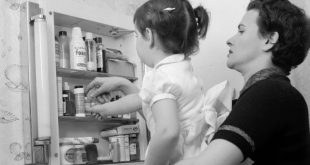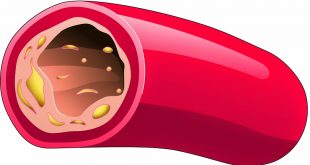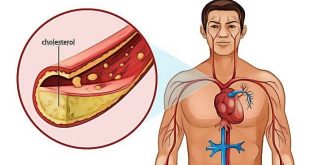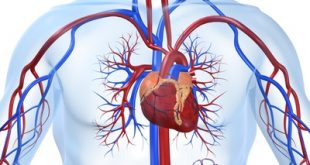What Is Frailty?
An 80 year old man may be still active in daily life activities and enjoys an outing with friends every evening while another 80 year old man may be restricted to wheel chair due to severe arthritis of both knees and demented, requiring assistance even in feeding and bathing.
The first example is a robust elderly while the latter is a frail elderly.
The elderly population comprise of a heterogeneous group of people. Frailty occurs when there is a reduction of the body reserve in a person, reducing his/her ability to withstand the challenges in the environment. In other words, frail elderly are more prone to severe outcome from illness and even medications.
Hypertension And Frail Elderly
The incidence of hypertension increases with age.
There is no difference in terms of treatment and treatment goal for robust elderly as compared to the young (refer to the topic on hypertension and elderly (well)).
However, treatment of hypertension in frail elderly needs to be individualized as the frail elderly are more prone to side effect of medications.
What Causes Frailty In Elderly?
Frailty can affect the physical, mental, emotional as well as social aspects of an elderly.
Physical and mental frailty is an accumulation of:
- Degenerative process of wear and tear (eg. joint arthritis)
- Degenerative disease (eg. Alzheimer’s dementia, Parkinson’s disease)
- Physiological decrease in organ function and muscle mass
Social aspect of frailty may occur due to the following:
- Decease of spouse/ relatives and/or close friends
- Adult children working and/or staying at far distance
Who Is Frail?
There is no easy way to define who is frail.
The most dependent elderly is definitely frail and the well independent elderly is definitely not frail. However, it is not easy to identify the middle group of elderly.
As the frail elderly responds more sensitively to treatment, it is important to report any possible side effects from medications to your doctor. Even if you doubt the relationship between the symptoms and medications, it is better to report it and let your doctor investigate.
A complete assessment by your doctor may help to identify elderly at risk (frail).
Complications
The frail elderly has higher incidence of side effects from medications reported compared to the robust elderly and younger people.
The frail elderly may also manifest side effects which are not commonly reported. The presentation of side effects may be atypical in the frail elderly.
Frail elderly are more prone to postural hypotension (link to postural hypotension) which may lead to a fall from anti hypertensive medications.
Elderly patients are more likely to be on many medications. Interaction between medications may result in bad effects. For example, elderly who is already on blood pressure medication may have a drastic drop in blood pressure if a prostate medication is added, leading to a fall from giddiness. Therefore, inform your doctors on all the medications that you are taking.
Is There A Test For Frailty?
Frailty has been studied by many authors but agreement as to which scale is best have not been agreed upon.
A fast screening test that may be done is called the TIME UP and GO test. You will be required to stand up from sitting position and ask to walk for a distance before turning back and walk back to the seat. How you stand from sitting position, how you walk, time taken to walk will be assessed.
What Can I Do At Home?
Frail elderly are at higher risk to have postural hypotension from treatment of hypertension. You may have a simple automated blood pressure device and check your own blood pressure at home.
You should check the blood pressure on sitting and standing.
A significant reading will be a drop of:
- 20 mmHg of the upper reading (systolic) and/or
- 10 mmHg of the lower reading (diastolic)
In doubt, always get medical advice from your doctor.
How Is Hypertension Treated In Frail Elderly?
Hypertension in frail elderly is treated the same way as any other person with hypertension with the following adjustments:
- The medications should be started at the lowest dose and the dose increased slowly while checking on side effects.
- The goal of hypertension control may not be achieved if the elderly developes severe postural hypotension despite the adjustment of dose and type of the high blood pressure medications.
For people age 80 and above, the goal of blood pressure control should be <150/80mmHg. A goal set higher than for younger elderly. However this goal should be individualized to the particular person.
Prevention
Frailty can be delayed if we engage in active physical early. This should start from young in order to build the body reserve.
Prevention of side effects can be done by reporting accurately any potential problems to your doctor.
Always bring all your medications when you see your doctor. Knowing what you are on, can help your doctor plan what medications to add on. This is to prevent unwanted drug interactions.
References
- Beckett, N.S., Peters, R., Fletcher, A.E., et al. (2008).Treatment of Hypertension in Patients 80 Years of Age or Older for the HYVET Study Group. N Eng J Med, 358, 1887-1898.
- Chobanian, A.V., Bakris, G.L., Black, H.R., et al.(2003). The Seventh Report of the Joint National Committee (JNC) on the Prevention, Detection, Evaluation and Treatment of High Blood Pressure.JAMA, 289(19), 2560-2572.
- Espinoza, S. & Walston, J.D. (2005). Frailty in older aldults: Insights and interventions. Cleveland ClinJMed,72(12).1105-1112.Available: http://geriatrics.uthscsa.edu/reading%20resources/Frailty%20in%20older%20adults,%20Insights%20and%20Interventions%20(Espinoza%20-%20Walston).pdf. Accessed 20 Sept 2012
- Rahman, A.R., Bavanandan, S., Kamaruddin, A.S., et al. (2008). Clinical Practice Guidelines: Management f hypertension ( 3rd ed. 2008): Ministry of Health Malaysia.
| Last Reviewed | : | 18 April 2014 |
| Writer | : | Dr. Cheah Wee Kooi |
| Translator | : | Dr. Cheah Wee Kooi |
| Accreditor | : | Dr. Lee Fatt Soon |
 PENDIDIKAN PESAKIT Kementerian Kesihatan Malaysia
PENDIDIKAN PESAKIT Kementerian Kesihatan Malaysia



